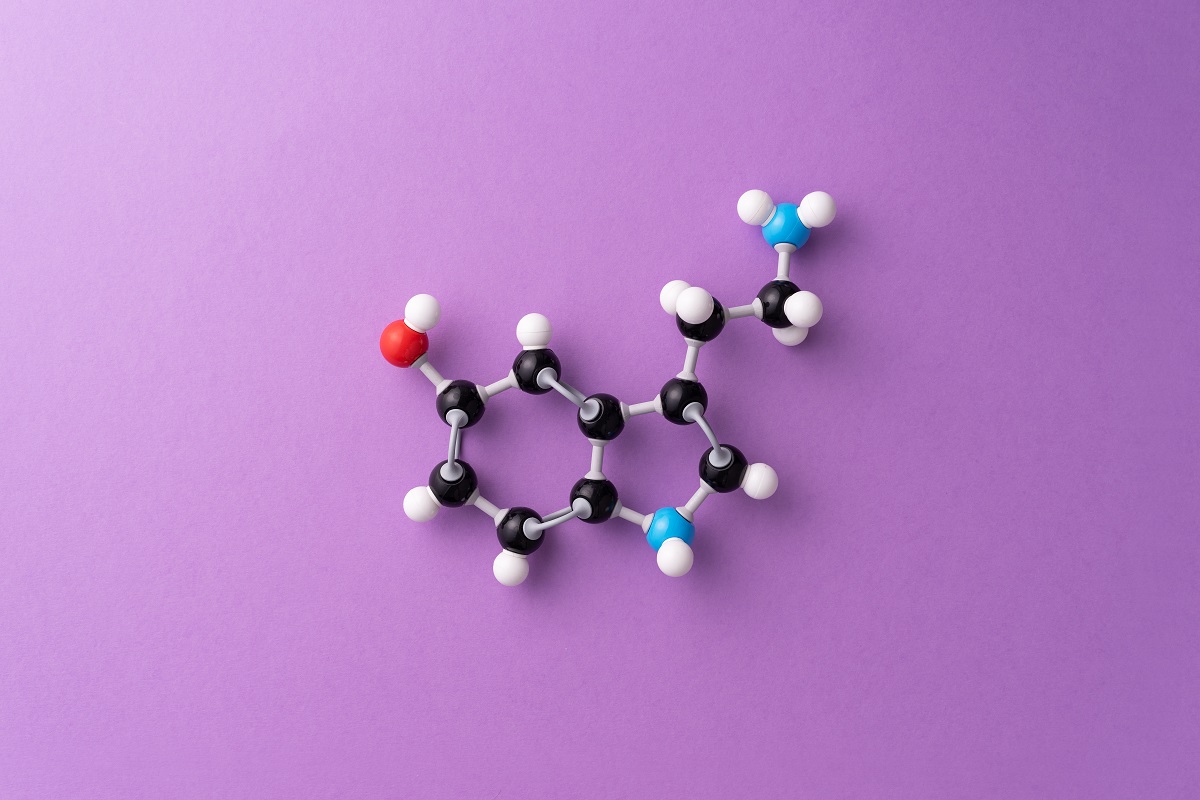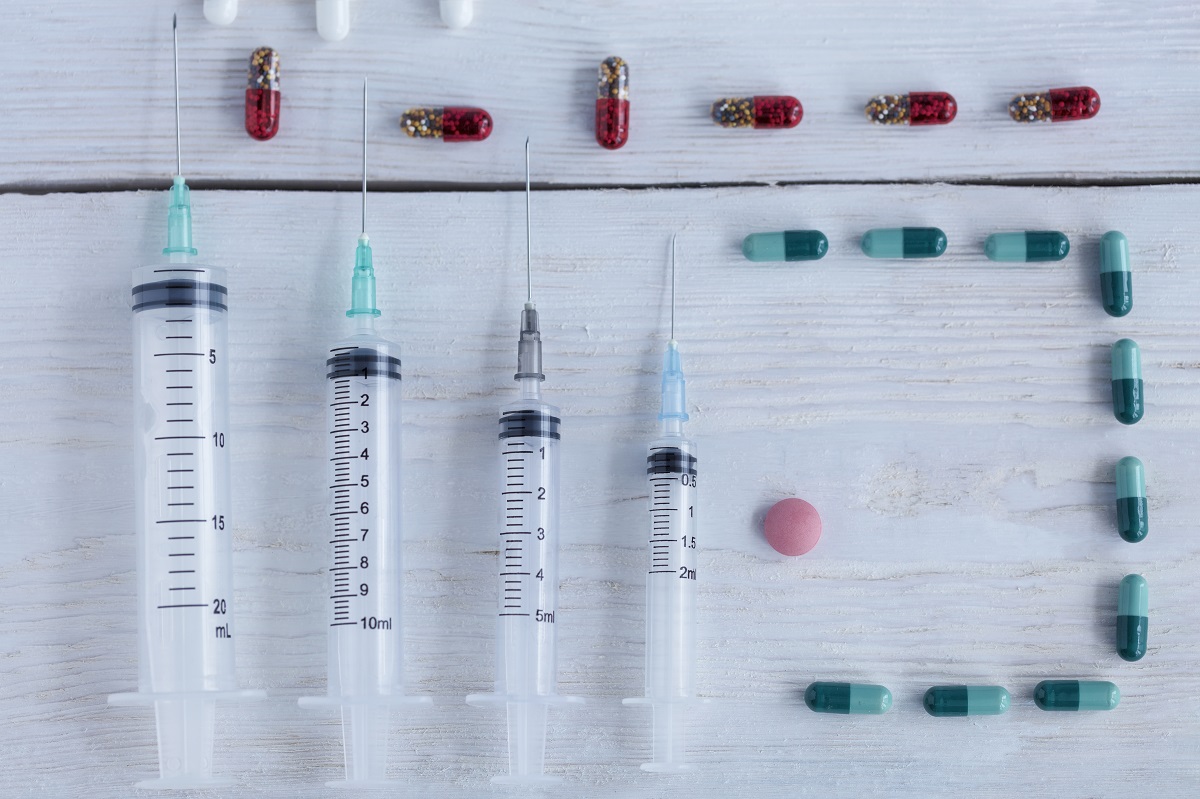This is a condition in which a person experiences a serious drug reaction. Usually, it occurs due to medicines that build up an increased level of serotonin in the body. A chemical produced naturally by the body that helps the brain and nerve cells function properly is known as serotonin. If this chemical reaches high levels, it may cause symptoms ranging from mild (such as diarrhea) to severe (including fever, seizures, and others). It is not recommended to ignore this health problem because it may lead to unpleasant complications or even death.
Mostly, it happens when people take medications that contain serotonin (such as migraine drugs and antidepressants). However, some recreational drugs and dietary supplements are linked to increased serotonin too.
If you experience a mild form of serotonin syndrome, it usually does not require treatment and disappears within 1-2 days after you stop using the underlying medications. In any case, some people may need medicines that interrupt serotonin production.
Symptoms
The symptoms of this syndrome usually happen within a few hours after increasing the dose of medicine you already use or administering a new one. Check below some examples:
- Dilated pupils
- Hypertension (high blood pressure)
- Confusion
- Sleeping disturbances (insomnia)
- Agitation or restlessness
- Fast heart rate
- Muscle rigidity
- Heavy sweating
- Loss of muscle coordination
- Headaches
- Shivering
- Goosebumps
If you experience a severe form of serotonin syndrome, you may experience some dangerous symptoms. Examples include:
- Seizures
- High body temperature
- Unconsciousness
- Irregular heartbeat
- Tremors
It is advised to seek medical attention immediately if you experience any of the previous symptoms or worsening of the existing ones.
Causes
The main cause of this syndrome is the increased level of serotonin in the body. In normal circumstances, serotonin is produced by nerve cells in the spinal cord and brain. This chemical helps to control attention, behavior, and body temperature. Certain nerve cells in the intestines also make serotonin. In such cases, it helps to regulate blood flow, breathing, and digestive process.
People commonly experience this health problem by administering a combination of medicines (such as migraine drugs and antidepressants). If you intentionally administer more antidepressant medicines than is recommended by your doctor, serotonin syndrome can also happen.
There are different over-the-counter (OTC) and prescription medicines that are linked to serotonin syndrome. Check some of them below:
- SSRIs (selective serotonin reuptake inhibitors) – For example Citalopram, Fluoxetine, Fluvoxamine, Escitalopram, Paroxetine, and Sertraline.
- SNRIs (serotonin and norepinephrine reuptake inhibitors) – These include Desvenlafaxine, Levomilnacipran, Duloxetine, Venlafaxine, and Milnacipran.
- Bupropion – This is an antidepressant usually prescribed for people with tobacco addiction.
- Tricyclic antidepressants – Such as Amitriptyline and Nortriptyline.
- MAOIs (monoamine oxidase inhibitors) – Including Isocarboxazid and Phenelzine.
- Anti-migraine medicines – For example Carbamazepine, Valproic acid, and triptans (such as Almotriptan, Naratriptan, and Sumatriptan).
- Painkillers – This is a group of medicines prescribed by doctors to lessen pain. For example Codeine, Fentanyl, Hydrocodone, Oxycodone, Meperidine, and Tramadol.
- Lithium (this is a medicine known as a mood stabilizer)
- Street drugs – These include ecstasy, LSD, cocaine, amphetamine, and others.
- Herbal supplements – For example St. John’s Wort, ginseng, nutmeg, and others.
- Nonprescription cold and cough drugs that contain Dextromethorphan.
- Anti-nausea drugs – Including Granisetron, Metoclopramide, Droperidol, and Ondansetron.
- Linezolid
- Ritonavir – This is an anti-retroviral medicine that is prescribed usually for people who suffer from human immunodeficiency virus (HIV).
Risk Factors
This health problem can happen to anyone but some factors could elevate your risk of getting it. Examples include:
- Begin use or increase the dose of a medicine that increases serotonin levels.
- You administer more than one medicine that elevates the levels of serotonin.
- You are using herbal supplements or illegal drugs that could also provoke this condition.
Complications
This condition usually does not cause any health problems if you interrupt using the medication that causes increased levels of serotonin. However, never left untreated serotonin syndrome because it may lead to life-threatening complications (such as unconsciousness) or even death.
How to Prevent Serotonin Syndrome?
It is advised to inform your doctor about all medicines and supplements you are using before getting a prescription for a new one. Another way to prevent this health problem is to take medications exactly as prescribed by your doctor. It means you should not increase or reduce the dose or administer a new one without a doctor’s approval.
Sometimes, a combination of medicines that lead to increased serotonin levels may be prescribed by your doctor but in such cases, benefits outweigh the risks. Consult with your healthcare professional about ways to manage the symptoms of this syndrome.
Diagnosis
However, there is no test that could confirm this syndrome. Physicians usually diagnose serotonin syndrome by excluding other possible causes or conditions of the symptoms. Commonly, healthcare professionals start with questions about the symptoms, medical history, and medicines you are administering. They can also perform a physical examination.
In most cases, doctors perform different tests that help to determine if the symptoms are caused by serotonin syndrome and not by other conditions. They usually perform tests to check for infections and affected body functions and measure the level of the medicines you are using.
In any case, there are different health conditions that could provoke symptoms very similar to those of serotonin syndrome. Check below some examples of causes that could provoke similar symptoms:
- People who use anesthetics, antipsychotics, and other medicines that may produce a severe reaction.
- Street drugs, antidepressants, or medications that could increase serotonin levels.
- Damage caused by illegal drugs
- Severe alcohol withdrawal
Generally, doctors perform the following tests to exclude other potential causes of the symptoms. For example CT scan, spinal tap, chest X-ray, blood and urine tests.
Treatment
Commonly, the treatment depends on the severity of the symptoms, which can be mild, moderate, and severe. For people with mild symptoms, just interrupting the use of underlying medicine can help with the symptoms. However, for those who suffer from moderate and severe symptoms, usually hospitalization is required. Check below some treatment options usually prescribed by doctors:
- Muscle relaxants – These include benzodiazepines to keep under control seizures, muscle stiffness, and agitation. For example Diazepam or Lorazepam.
- Serotonin-production blocking agents – Physicians usually prescribe this category of medicines when other treatment options do not work. One of the medicines that block serotonin production is called Cyproheptadine.
- Oxygen and IV (intravenous) fluids – These treatment methods help to treat dehydration, and fever, and help get enough oxygen in the blood.
- Heart rate and blood pressure medications – For example Nitroprusside and Esmolol. However, if you experience a sudden drop in blood pressure, doctors may recommend Epinephrine or Phenylephrine.
- Some people require muscle-paralyzing medicines and a breathing machine or tube. It is usually prescribed for people with high fever.
Commonly, mild forms of serotonin syndrome disappear within 72 hours after you stop taking the medications that elevate the serotonin levels. Sometimes, you may need to administer drugs to interrupt the serotonin effect in the body until it returns to normal levels.
Frequently Asked Questions
What are the most common symptoms of serotonin syndrome?
- Muscle rigidity
- Confusion
- Sleeping problems
- Restlessness
- High blood pressure among others.
Talk with your doctor if you suspect you have serotonin syndrome.
What is the best treatment for serotonin syndrome?
Physicians usually recommend the following options to treat this syndrome. For example:
- Benzodiazepines (such as Diazepam)
- Cyproheptadine
- IV fluids
- Discontinue using the underlying medications
However, you should not start or stop using any medicines without a doctor’s recommendation. Otherwise, it may lead to unpleasant outcomes (such as worsening of the symptoms).
What are the main causes of low serotonin levels?
A low production of serotonin can happen due to stress, genetics, chronic pain, and nutritional deficiencies. Ask your healthcare provider if you have additional questions.




